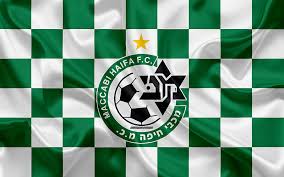
Maccabi Haifa FC
Maccabi Haifa FC is one of the most storied and successful football clubs in Israel. Founded in 1913, this club has a rich history filled with triumphs, passionate fans, and moments that have defined the Israeli football landscape. Over the years, Maccabi Haifa FC has cultivated a strong identity, both on and off the pitch, as it continues to evolve in a competitive environment. As we delve into the intricate tapestry that makes up Maccabi Haifa FC, we will explore its history, achievements, fan culture, and its impact on Israeli football 789win.
The History of Maccabi Haifa FC
The history of Maccabi Haifa FC is profound and layered, showcasing how the club evolved from local beginnings to a national powerhouse.
The Early Years: Foundation and Struggles
Maccabi Haifa FC was founded in 1913 by a group of Jewish athletes in Haifa. In its early years, the club struggled for recognition in a nascent football scene. The combination of socio-political factors and limited resources created hurdles that the team needed to overcome. However, the drive of its founders and their dedication to the sport laid the groundwork for what would become a significant entity in Israeli sports.
During the early part of the 20th century, football was not as popular in Palestine as other sports. The club participated in local leagues, facing fierce competition from other emerging teams. These formative years were critical, as they instilled resilience and adaptability within the club’s ethos.
As Maccabi Haifa began to find its footing, the landscape of football in Israel started to shift. The establishment of the State of Israel in 1948 provided an impetus for growth in sports, including football. It was during this time that Maccabi Haifa FC began to rise in prominence, marking the beginning of an era of success.
Establishing Dominance: The Golden Era
The late 1950s and the 1960s are often referred to as the golden era for Maccabi Haifa FC. The club won multiple championships and established itself as a force in Israeli football. One cannot discuss this period without mentioning the likes of legendary players such as Shlomo Levi and Yechiel Shenhav. These icons brought flair, skill, and tenacity to the pitch, captivating fans and leaving an indelible mark on the club’s legacy.
The team’s ability to blend youth with experience was also instrumental during this period. Young talents emerged, supported by seasoned veterans, resulting in an exciting playing style that attracted attention beyond Israel. Maccabi Haifa FC’s commitment to nurturing talent set it apart from other clubs, leading to numerous victories in domestic competitions.
However, it wasn’t all smooth sailing. Competition intensified, and rivalries grew fiercer, particularly with clubs like Hapoel Tel Aviv and Beitar Jerusalem. The dynamic nature of these matches not only fueled the passion of fans but also shaped the identity of Maccabi Haifa FC as a resilient competitor, always striving to maintain its stature amidst challenges.
The Modern Era: Challenges and Resilience
Entering the 21st century, Maccabi Haifa FC faced new challenges, including fluctuating performance levels and changes in management. The advent of globalization meant that clubs from around the world could attract players and resources, making the football landscape more competitive than ever.
Despite these challenges, Maccabi Haifa FC demonstrated remarkable resilience. With strategic investments in player development and infrastructure, the club was able to weather difficult seasons. The introduction of innovative coaching methods and a focus on analytics allowed them to remain competitive in both local and European competitions.
